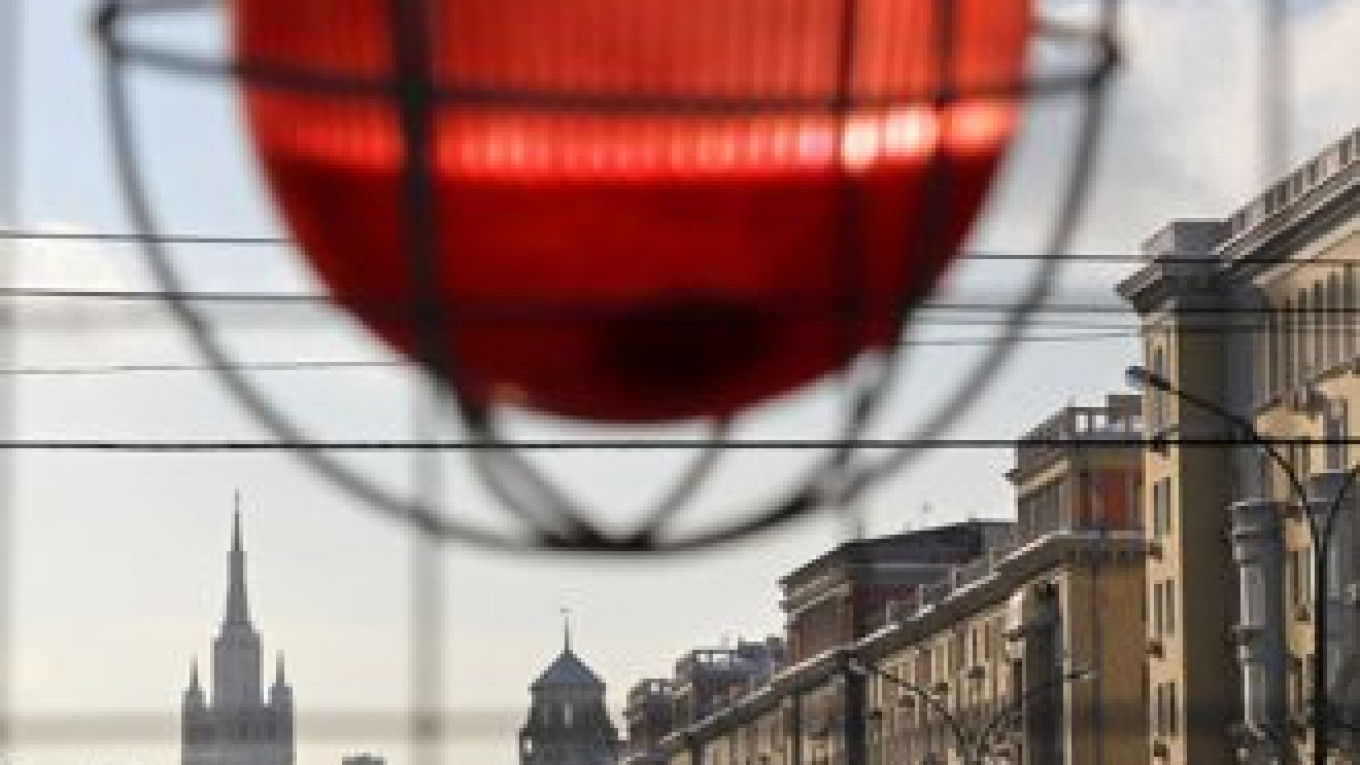Goldman Sachs Group chief executive Lloyd Blankfein said Moscow's traffic jams are the biggest obstacle to turning the capital into a financial hub, according to Deputy Finance Minister Dmitry Pankin.
Blankfein and President Dmitry Medvedev discussed investment opportunities in Russia and Medvedev's plans for the capital at meeting Tuesday outside Moscow that Pankin attended.
"The first question we asked was about the main problem for creating Moscow as a financial center," Pankin said in an interview in Moscow on Wednesday. "He said it was the bottleneck from the airport to the city center."
Medvedev has named 27 people, including Blankfein, JPMorgan Chase chief Jamie Dimon and Citigroup head Vikram Pandit, to an advisory board as the Russian leader seeks to bolster the country's role in international finance, according to information on the Kremlin's web site this month and a member of the board who declined to be identified.
Goldman Sachs is among the 23 banks selected by the government last year to help manage its 1 trillion ruble ($35 billion) state-asset sale program over three years.
Transport and infrastructure, as well as childcare, are priorities for bankers working in Moscow, Pankin said. Goldman Sachs declined to comment, said a spokeswoman who asked not to be named, citing company policy.
Moscow drivers suffer the longest traffic jams of major cities, making for a "grueling" atmosphere that inhibits commerce, according to a July report by International Business Machines Corp.
The average Muscovite motorist spent a "whopping" 2 1/2 hours stuck in traffic at least once in the last three years, IBM said in its global study on the "emotional and economic toll of commuting."
A Message from The Moscow Times:
Dear readers,
We are facing unprecedented challenges. Russia's Prosecutor General's Office has designated The Moscow Times as an "undesirable" organization, criminalizing our work and putting our staff at risk of prosecution. This follows our earlier unjust labeling as a "foreign agent."
These actions are direct attempts to silence independent journalism in Russia. The authorities claim our work "discredits the decisions of the Russian leadership." We see things differently: we strive to provide accurate, unbiased reporting on Russia.
We, the journalists of The Moscow Times, refuse to be silenced. But to continue our work, we need your help.
Your support, no matter how small, makes a world of difference. If you can, please support us monthly starting from just $2. It's quick to set up, and every contribution makes a significant impact.
By supporting The Moscow Times, you're defending open, independent journalism in the face of repression. Thank you for standing with us.
Remind me later.






